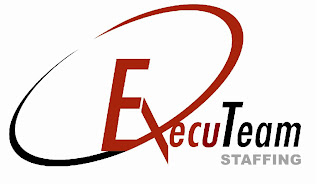
What if you could talk to four hiring professionals and ask them what they REALLY wanted to see in your resume?
Do you think that might give you an advantage in your job search?
I spoke to recruiters and career experts from across America and convinced them to share their best advice with you.
So, without further ado, here are four tips from career experts to help you write a better resume – and get hired!
1.Research the company and customize your resume
In this job market, too many candidates are chasing too few openings. That means you must differentiate yourself. And a great way to do that is to customize every resume, to clearly target the positions you apply for.
"I advise all candidates to send out no generic resumes. Make sure you include keywords from the job postings online or from the newspaper – this can grab employers' attention and keep them reading," says Felix Lin, a recruiting professional at Los Angeles-based Marclin Group (www.marclingroup.com).
So carefully match your resume to job postings, to make sure your resume hits all the hot buttons in every ad you respond to.
In addition, research target companies using www.google.com, www.hoovers.com and your network of contacts. The more you know, the better you can tailor your resume to appeal to hiring managers.
"You want to know what kind of management style will be a good fit at your target employer. If you have contacts there, find out what happened to the person you'll be hired to replace. Were they fired, promoted, what? Use any advantage you can get – you have to research companies like there’s no tomorrow," says Lin.
2.Showcase your achievements
When writing your resume, shoot off your big guns early. Because if you start off slow, employers may never finish reading.
"Top career accomplishments and awards should be at the top of page one for impact, not buried on page two," says Ron McManmon, a former recruiter and currently Executive VP of Bend, Oregon-based Careeradex, Inc. (www.careeradex.com).
For best results, mention at least 2-3 of your top achievements within the top third of page one -- this is the most valuable real estate in your resume.
You can include your achievements in a Profile or Qualifications Summary section, with 4 or 5 bulleted paragraphs, each one or two lines long. Bullets make for easy reading and allow you to make your best points quickly.
3.Break up long text
"Avoid paragraph forms that are text heavy and hard on the eyes. Bullet points definitely make for easier reading," says Rick Fox, Branch Manager at Edina, Minn.-based Princeton Search (www.mrimpls.com).
My own rule of thumb is to break all paragraphs longer than three lines into two or more shorter, bulleted sections.
Here's just one "before" and "after" example from a recent resume that crossed my desk, with grammar and punctuation improved as well.
BEFORE
Administrator of a 40-node local area network utilizing Windows NT primary domain model, integrated with a Novell Netware server for GroupWise E-mail access. Windows NT Server 4.0 provided DHCP-TCP/IP services for the intranet, as well as account validation, and management of shared resources. Windows NT Workstation 4.0 provided access to the domain.
AFTER
* Administered 40-node LAN running Windows NT primary domain, integrated with a Novell Netware server for GroupWise E-mail access.
* Managed Windows NT Server 4.0 (DHCP-TCP/IP for intranet, account validation, and shared resource management) and Windows NT Workstation 4.0 (domain access).
4.Stay within two pages
"The initial review of a resume is very brief -- as little as 13 seconds. We look for several items, including companies worked for, job titles and timeline. These should all be prominently displayed," says Doug Binning, President of Minneapolis-based Upstart Solutions (www.upstartsolutions.com).
A good rule of thumb is to limit your resume to two pages at most. "The attention span of resume reviewers is notoriously short," adds Binning.
Anything that doesn't make the cut can be used to create supplemental documents, listing your projects and prior experience in detail.
Bring these supplements to the job interview, where you can use them to expand on your resume.
Best of luck to you!
-Kevin Donlin
From www.net-temps.com





































